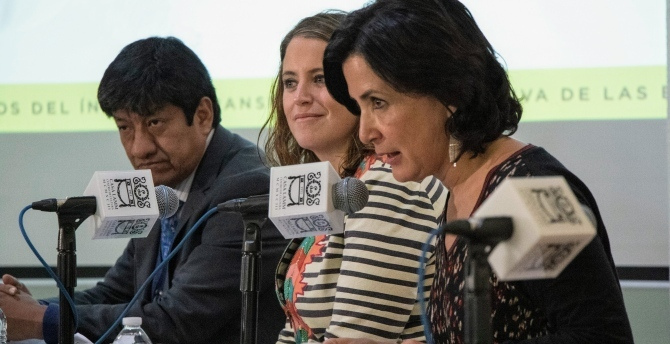
Energy-focused state-owned enterprises (SOE) play a critical role in Mexico’s economic growth, but they often operate under poor governance structures, weak management systems, and widespread inefficiency. Worse, poor transparency practices make SOE’s vulnerable to corruption. With Mexico’s government still in a state of transition under President Andrés Manuel López Obrador, increasing transparency and promoting good corporate governance in state-owned enterprises is an important step in decreasing the barriers to entry for private businesses.
To measure how well SOE’s are implementing standard corporate governance practices, México Evalúa created an evaluation tool as part of a larger research project, “Improving Transparency and Governance of State-Owned Energy Sector Enterprises,” which stressed the importance of timely, reliable, and complete information that can help to create a level playing field for private initiatives.
“México Evalúa created an evaluation tool to find out how well these [energy] companies are implementing corporate governance transparency practices and created a training program to teach Pemex and CFE leaders about best corporate governance practices and transparency mechanisms,” commented María Fernanda Ballesteros, México Evalúa’s Competition and Regulation Coordinator. “We believe corporate transparency is a smart tool that state-owned enterprises can use to discourage corruption and increase efficiency, bringing benefits to other businesses that use their services. As their processes and decision-making become more visible, public scrutiny becomes more feasible.”
In his first year in office, President López Obrador, known widely as AMLO, has been vocal about his populist agenda, rolling back energy reforms and sending investors running. For the energy sector of the Mexican economy, his plans almost certainly indicate more government control and regulation.
“Andrés Manuel López Obrador’s emphasis is on returning to the failed, but populistic and monopolistic model in the energy sector,” said Ballesteros. “México Evalúa is enthusiastic about seizing this opportunity to implement innovative strategies for impacting public policy decisions and contributing to raising awareness through advocacy efforts.”
From energy regulators to members of Congress, government bureaucrats, and other important stakeholders, México Evalúa’s project uses institutional evaluations and a media and advocacy campaign designed to advise top-level public officials at state-owned enterprises, including Petróleos Mexicanos (PEMEX) and the Comisión Federal de Electricidad (CFE).
But México Evalúa also believes the findings have implications for a far broader audience. “We consider the project’s scope a positive contribution to journalists, citizens, domestic and foreign investors, and commercial and social partners,” Ballesteros continued. Information about the project has been published in national media outlets, including Animal Político, Forbes México, and El Sol de México.
While there is still a great deal of work left to be done to promote transparency and sound governance in the Mexican energy sector, the project is a crucial step in educating important stakeholders and the general public about the need for improvement. As the impact of the project continues to unfold, México Evalúa’s efforts will also support anticorruption reforms that lead to a better investment of public funds.